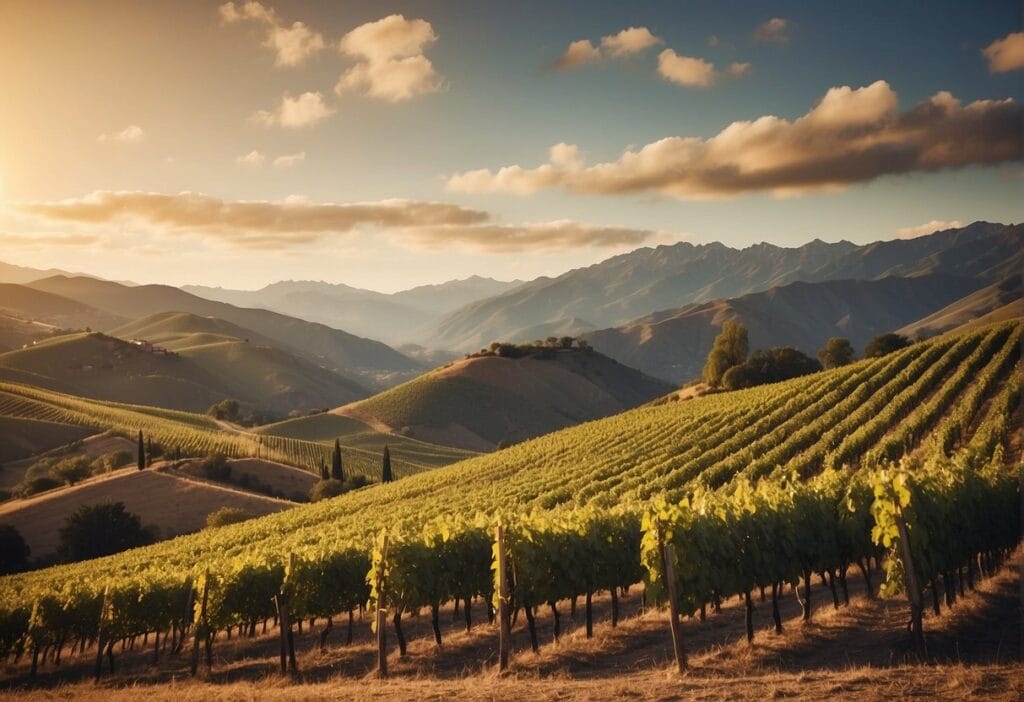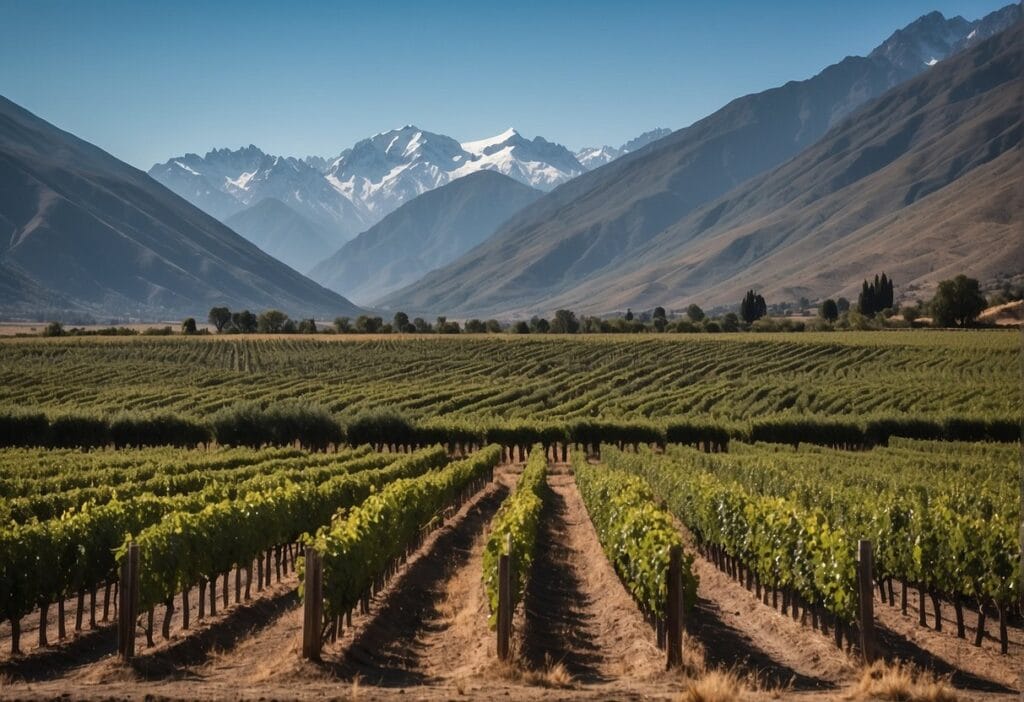Exploring Michigan’s vineyards is a delightful adventure for anyone who loves wine and beautiful landscapes. The state boasts a variety of wineries, each offering unique blends and stunning views. Visitors can enjoy wine tastings, tours, and special events that highlight the best that Michigan’s wine country has to offer.
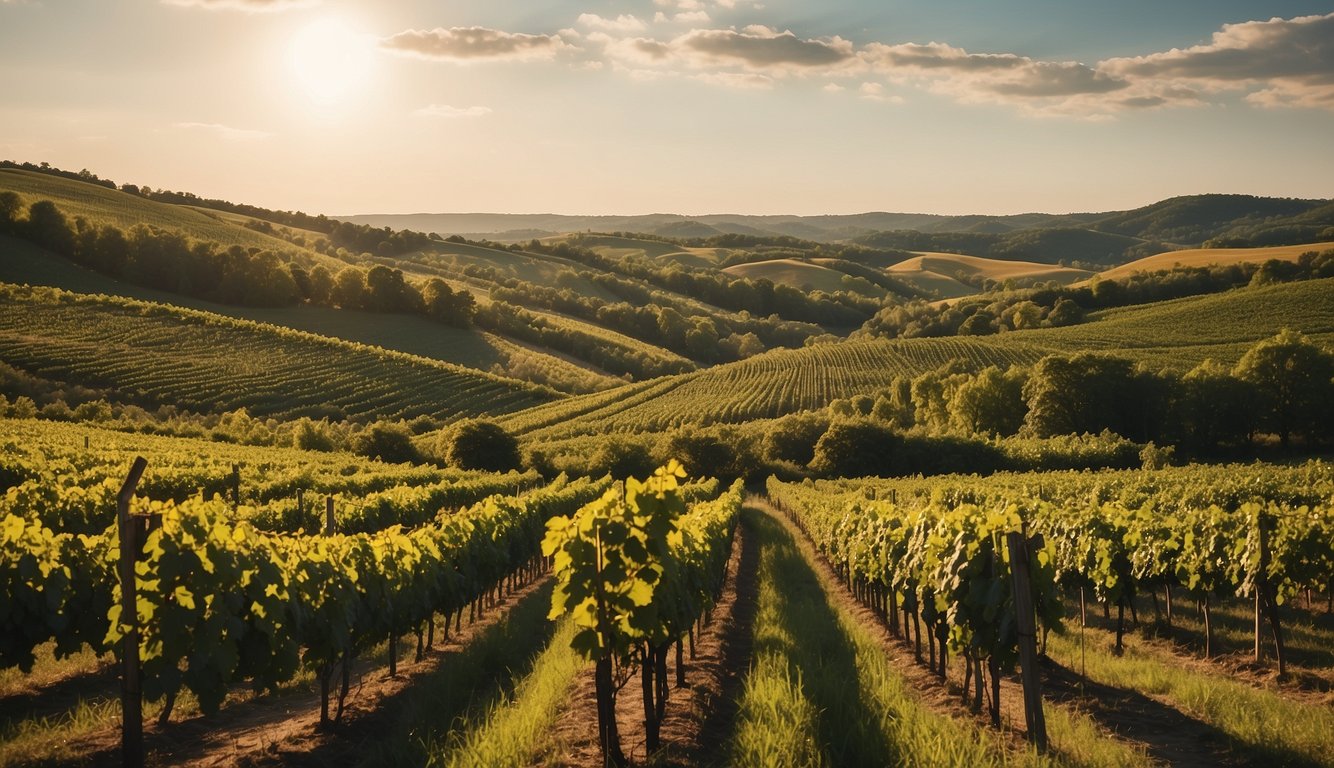
Why should you visit Michigan’s vineyards? Michigan’s wine industry has grown significantly in recent years, making it a top destination for wine enthusiasts. With diverse offerings from traditional reds and whites to innovative fruit wines, there’s something for every palate.
1) Black Star Farms
Black Star Farms is a standout among Michigan vineyards. Located only 12 miles north of Traverse City, it sits on the scenic Leelanau Peninsula. This vineyard offers more than just wine; it features a luxury Inn, an award-winning winery, and tasting room.
Their flagship location opened in 1998 and has a reputation for producing internationally acclaimed wines. Visitors can enjoy the on-site tasting room, distillery, and the elegant Bistro Polaris. The vineyard spans 160 acres, providing a delightful setting for scenic walks and hikes.
Black Star Farms also offers a luxury bed and breakfast, perfect for a relaxing getaway. The estate includes an equestrian facility for horse enthusiasts. With a combination of fine wines, beautiful landscapes, and various amenities, it has become one of the most visited spots in Michigan.
Their wines have even won the title of “Best in Show” at the Canberra International Riesling Competition. This highlights the high quality and craftsmanship behind every bottle they produce.
If you are in the area, visiting Black Star Farms is a must. The unique climate of the region contributes to the distinct flavors of their wines, making each tasting experience memorable.
2) Chateau Chantal
Chateau Chantal sits atop a 65-acre estate on Old Mission Peninsula. This vineyard offers stunning views of East and West Grand Traverse Bays. The combination of a winery, vineyards, and a bed and breakfast makes it a unique destination.
Located 12 miles north of Traverse City, Chateau Chantal is known for its award-winning wines. The 2011 Late Harvest Riesling, for example, won a double gold medal at the 2012 Tasters Guild International Wine Competition. Such accolades position it among the best wineries in Michigan.
The vineyard is open from 11:00 AM to 6:00 PM on Sundays through Wednesdays, and until 8:00 PM from Thursdays to Saturdays. Visitors can enjoy wine tastings during these hours. The tasting room offers a relaxing atmosphere and a chance to sample various wines produced on-site.
Chateau Chantal is more than just a vineyard. It combines Northern Hospitality with scenic views, making it a great spot for both wine lovers and those looking to unwind. For more information, visit their website here.
3) Mari Vineyards
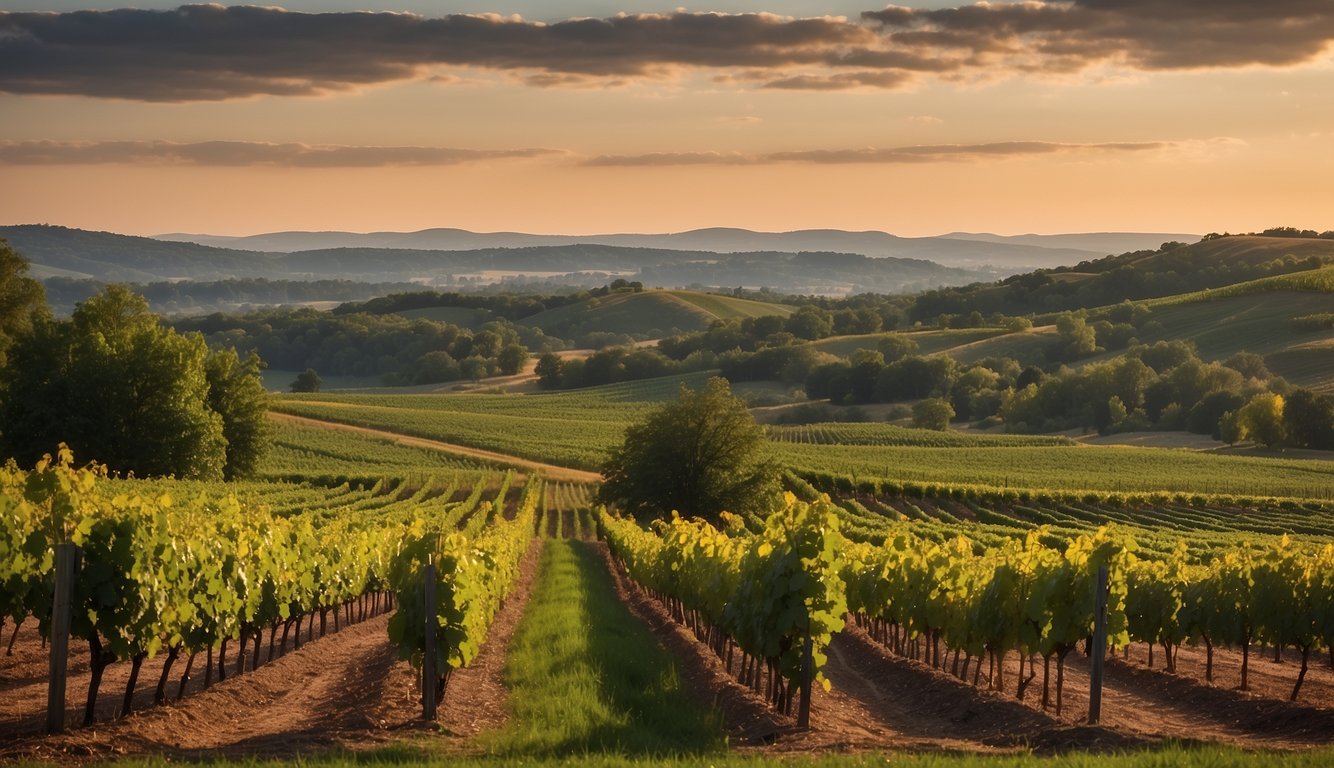
Mari Vineyards, located on the beautiful Old Mission Peninsula, offers a unique wine tasting experience in Northern Michigan. Founded by Marty Lagina, this vineyard has become well-known for its 100% estate wines. The winery features both red and white wines made from European grape varieties like Nebbiolo and Sangiovese.
With over 60 acres of grape vines planted, they produce a variety of estate-grown wines. Their 30,000-square-foot gravity flow production facility is impressive. Guests are invited to explore the spacious tasting room and outdoor patio, perfect for enjoying a glass of wine on a sunny day.
A standout feature is their 3,000-square-foot wine cave, buried more than 10 feet underground. This unique cave maintains an ideal temperature of 55 degrees for aging wines. It’s the first wine cave of this scale in Northern Michigan.
Mari Vineyards is also committed to the environment. They work closely with the Bee & Butterfly Habitat Fund to support local ecosystems. Visitors can enjoy the beautiful scenery and a tour of the facility. To ensure a spot, groups are encouraged to call ahead to arrange a tasting.
For more details, check out Mari Vineyards.
4) Fenn Valley Vineyards

Fenn Valley Vineyards is a family-owned and operated winery located in Fennville, Michigan. Established in 1973, this vineyard spans over 240 acres just five miles from Lake Michigan. The location was chosen for its ideal weather, climate, and soil conditions for growing grapes.
Visitors to Fenn Valley can enjoy award-winning wines and ciders, crafted from grapes grown on-site. The vineyard offers a delightful atmosphere, featuring gorgeous rows of grapevines and outdoor garden seating.
People can also indulge in wine tasting sessions, making it a must-visit destination for wine enthusiasts. The vineyard’s goal is to produce world-class wines, a mission they’ve upheld since their inception.
For more information, check out Fenn Valley Vineyards.
5) St. Julian Winery
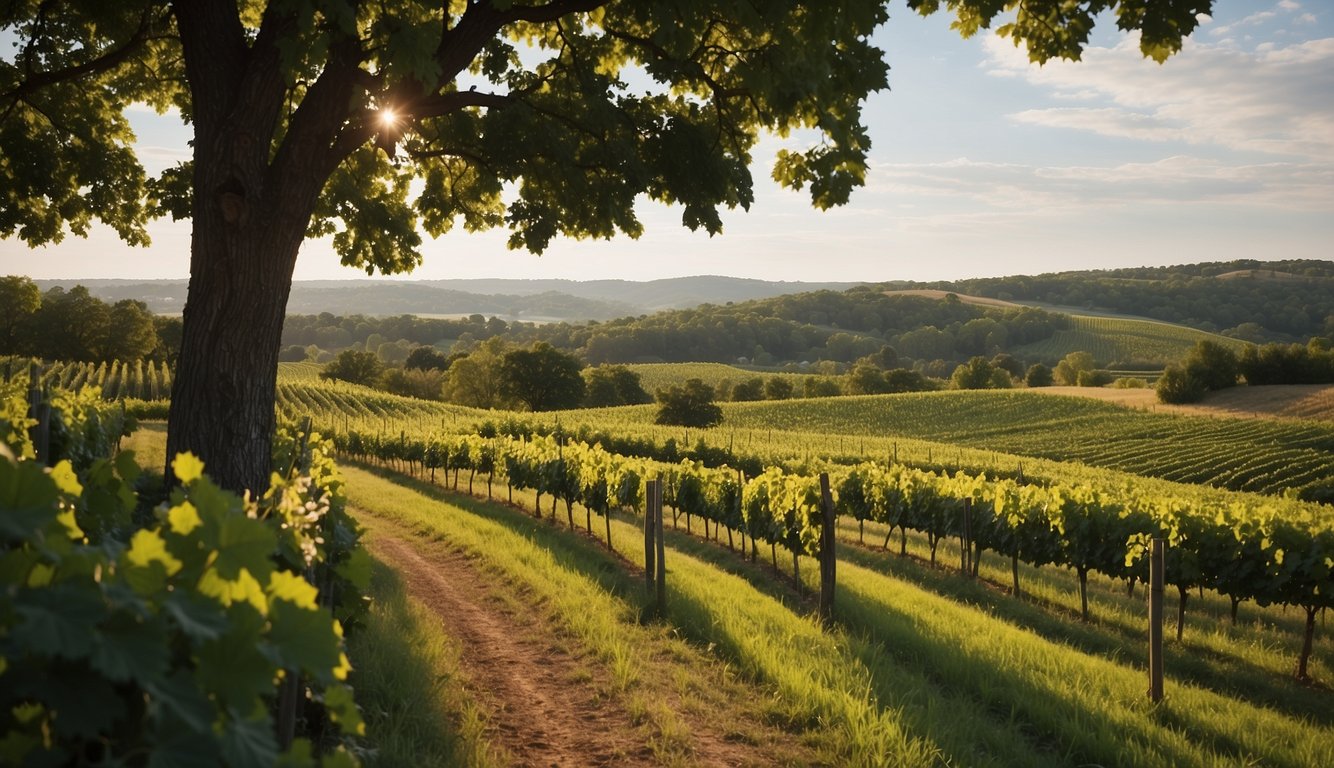
St. Julian Winery, located in Paw Paw, Michigan, is the oldest continuously operating winery in the state. Established in 1921, it has a rich history that spans over a century. The winery is family-owned and operated.
St. Julian boasts a diverse portfolio with over 100 products. Their selection includes award-winning dry and sweet wines, as well as hard ciders and spirits. This makes it a must-visit for any wine enthusiast.
The winery is known for its commitment to quality. It has earned the title of Michigan’s most-awarded winery. Visitors can enjoy tastings, tours, and special events throughout the year.
St. Julian’s vineyards benefit from Michigan’s unique climate and soil, which are ideal for grape growing. This ensures that their wines are not just varied but also of top-notch quality.
For more information, visit St. Julian Winery.
6) Leelanau Cellars
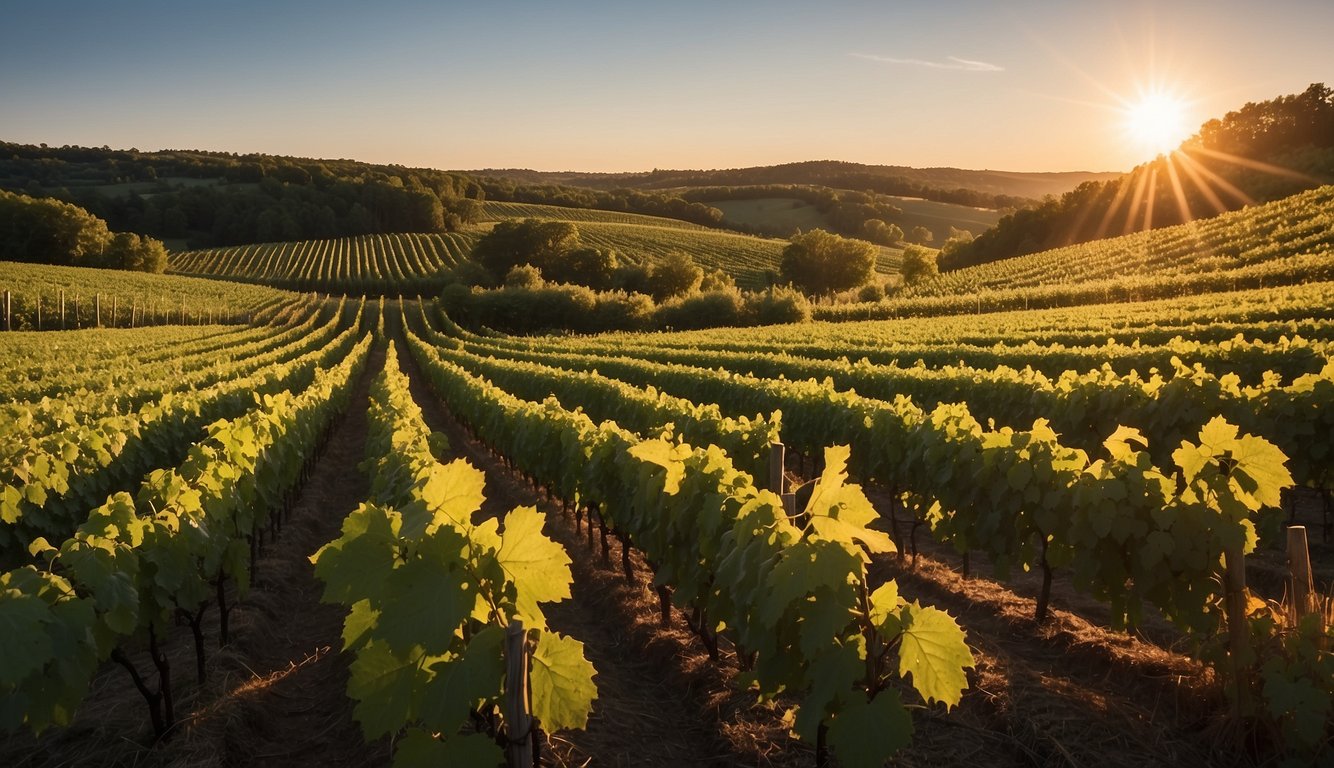
Leelanau Cellars is a well-known vineyard located on the scenic Leelanau Peninsula in Michigan. They are famous for their diverse wine selection and picturesque lakeside views.
Visitors often rave about the friendly and knowledgeable staff. Whether you are a wine connoisseur or a casual taster, the team at Leelanau Cellars helps you find the perfect wine to suit your palate.
One standout aspect of Leelanau Cellars is their wide range of wines. From dry reds to sweet whites, they offer something for everyone. Their tasting room provides a comfortable and inviting atmosphere, perfect for trying their award-winning wines.
The surrounding area adds to the winery’s appeal. Located near the shore, guests can enjoy beautiful vistas while they sip on their favorite wines. The outdoor seating areas make it an ideal spot to relax and unwind.
Leelanau Cellars also offers various events and tours that enhance the visitor experience. From wine and food pairings to seasonal celebrations, there is always something exciting happening at the winery.
For more detailed information, you can visit their website at Leelanau Cellars.
7) Sandhill Crane Vineyards

Sandhill Crane Vineyards is a charming, family-owned winery in Jackson, Michigan. Founded by Norm Moffatt and his family, this vineyard emerged from a passionate hobby turned business. Norm’s wife, Alice, his daughters, Holly and Heather, and his sister, Anne, all play a significant role.
The vineyard offers over 35 varieties of wine, using 100% Michigan-grown fruit. The eight-acre vineyard itself supplies about 10% of the grapes, with the rest sourced from other Michigan vineyards. This dedication ensures the wines are authentically local.
Visitors can enjoy a rustic tasting room and a cozy cafe. The menu features soups, sandwiches, and fresh pastries. Sandhill Crane Vineyards is also known for its special events like the Wine & Wool Festival, Summer Art & Music Festival, and creative workshops.
For anyone interested in experiencing Michigan’s wine culture, Sandhill Crane Vineyards is a must-visit. More information is available on their official website.
8) Left Foot Charley
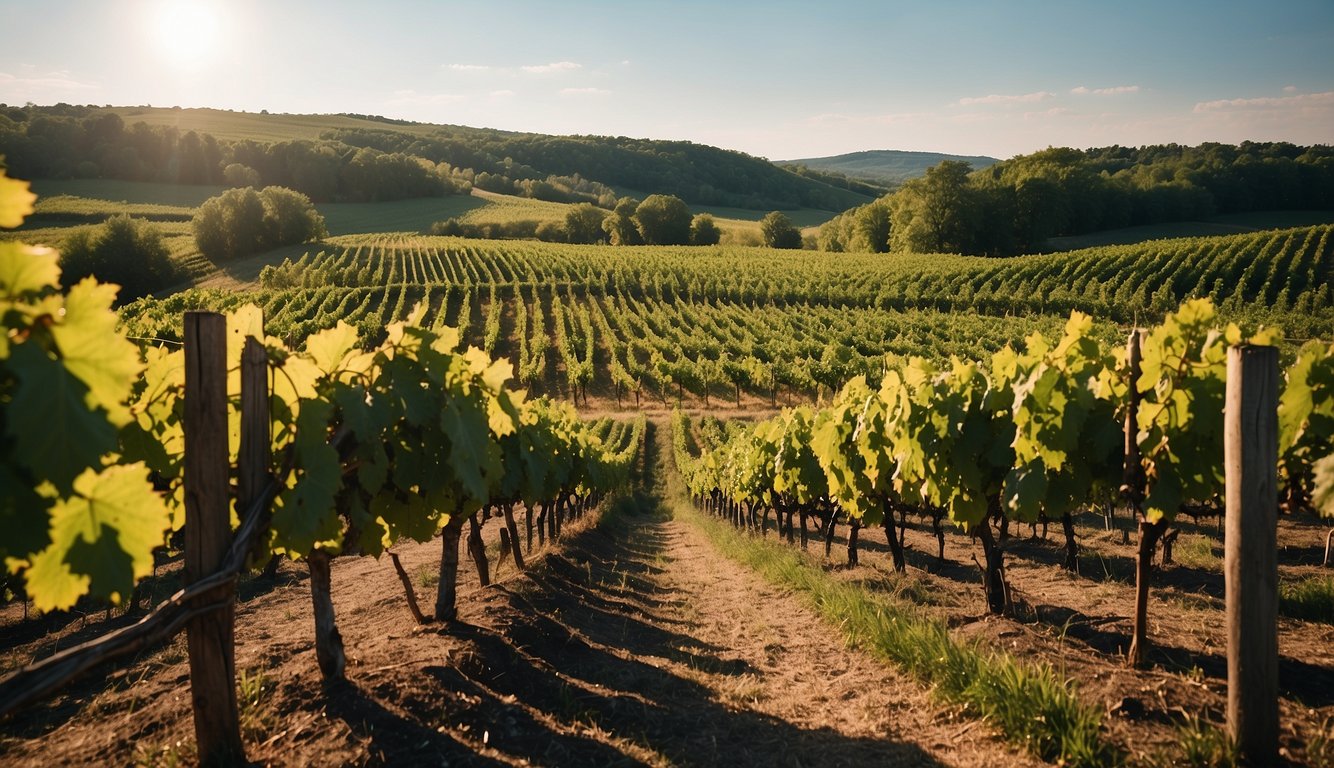
Left Foot Charley stands out among Michigan vineyards with its unique urban location in Traverse City. Unlike most wineries, it collaborates with many small vineyards across Northern Michigan.
They offer a modern tasting room, where guests can enjoy award-winning wines and hard ciders. The tasting room is open from 12 PM to 7 PM Tuesday-Saturday and 12 PM to 6 PM Sunday-Monday.
For an even more special experience, visitors can book a private tour of the Barrel Room. This room is open Monday from 4 PM to 9 PM, Friday-Saturday from 2 PM to 8 PM.
Left Foot Charley also hosts the Wine Wagon Tour at $65 per person. According to The World Pursuit, this tour is a great way to explore the vineyard and taste some fantastic wines.
Some signature wines include Riesling, Pinot Blanc, Pinot Grigio, and Gewurztraminer, sourced from Northern Michigan’s finest vineyards. This diverse selection is mentioned on their Yelp page.
Whether you’re a wine enthusiast or just looking for a fun outing, Left Foot Charley offers a friendly and enjoyable experience for all.
9) Hickory Creek Winery
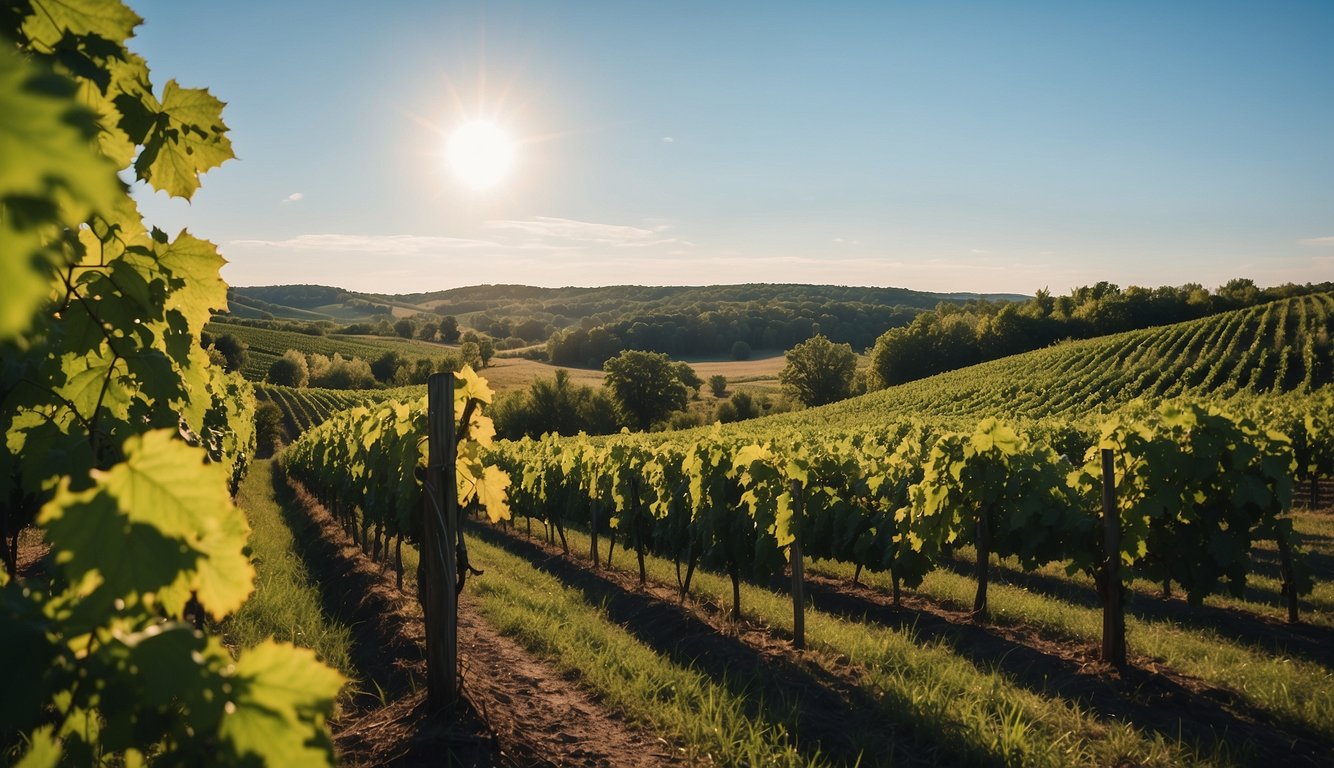
Hickory Creek Winery in Buchanan offers a charming and cozy experience. This small, veteran-owned winery specializes in European old world style wines made from local grapes. Visitors can enjoy tastings in a red barn tasting room or in the outdoor picnic area and patio.
The staff at Hickory Creek Winery are known for their friendly and welcoming demeanor. They offer tastings by the glass or by the bottle. Wines on offer include Riesling, Pinot Gris, and Grüner Veltliner.
Located in the heart of the Lake Michigan Shore AVA, Hickory Creek Winery grows a variety of grapes suitable for the cold climate. Popular grapes include Cabernet Franc, Chardonnay, and Merlot. The winery has won multiple awards, including Gold, Silver, and Bronze medals at the Michigan Wine Competition.
For anyone interested in a relaxing and friendly wine experience, Hickory Creek Winery is a must-visit destination.
10) Tabor Hill Winery
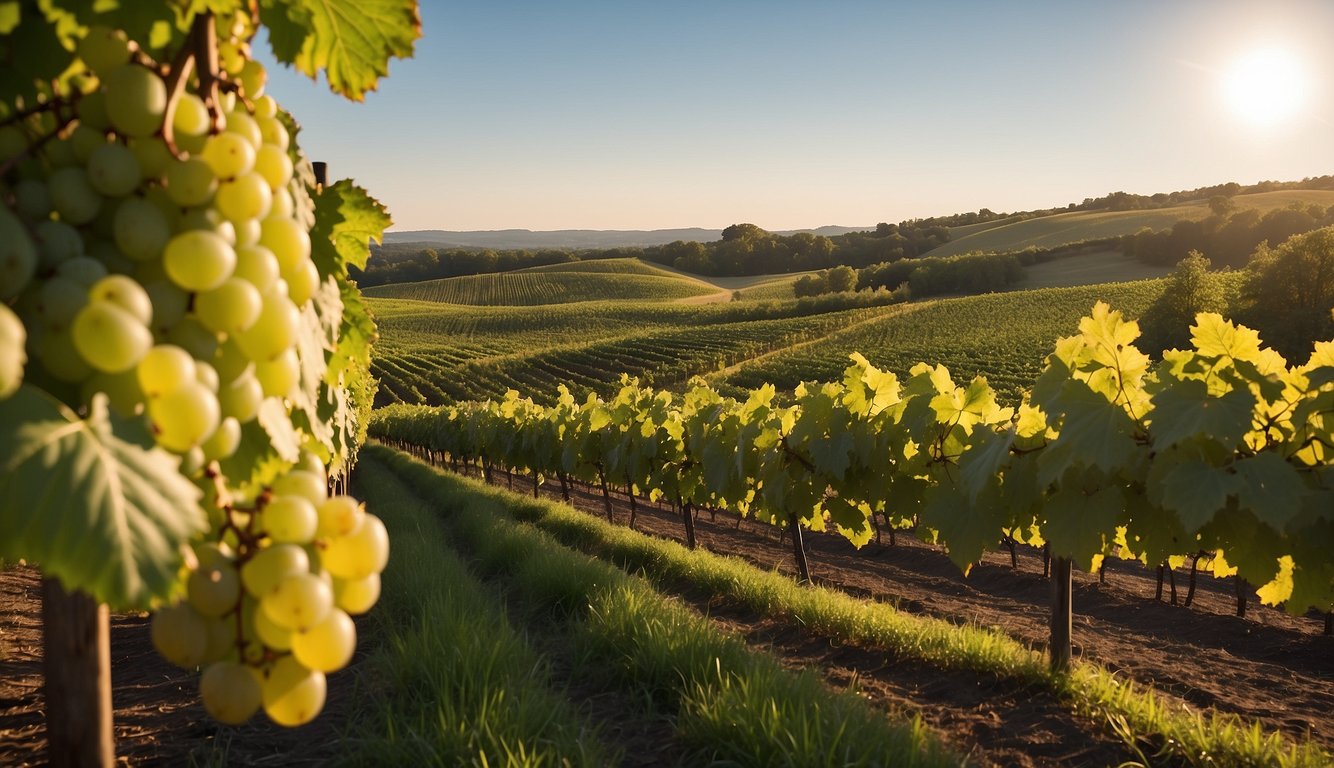
Tabor Hill Winery in Buchanan is a premier destination for wine lovers. Known for its award-winning wines, the winery offers a delightful range of options including Riesling, Pinot Noir, Cabernet Franc, and many more.
Visitors can enjoy stunning views of the surrounding countryside from the vineyard. The setting enhances any wine-tasting experience. Tabor Hill also offers guided tours and hosts various events throughout the year.
The winery features a restaurant where guests can savor gourmet dining. The menu pairs perfectly with their wide selection of wines. Many consider Tabor Hill a must-visit place in Southwest Michigan due to its combination of great wine and delicious food.
For those interested in exploring more, Tabor Hill provides an unforgettable experience of panoramic views of Lake Michigan. This world-class vineyard is considered one of the fun activities to do near South Haven, Michigan.
With its impressive collection of red, white, and sparkling wines, Tabor Hill stands as a top choice among Michigan’s best wineries. The winery’s atmosphere is both welcoming and upscale, making it a favorite spot for both locals and tourists alike.
Learn more about Tabor Hill Winery by visiting their official website.
History of Michigan Wine Country
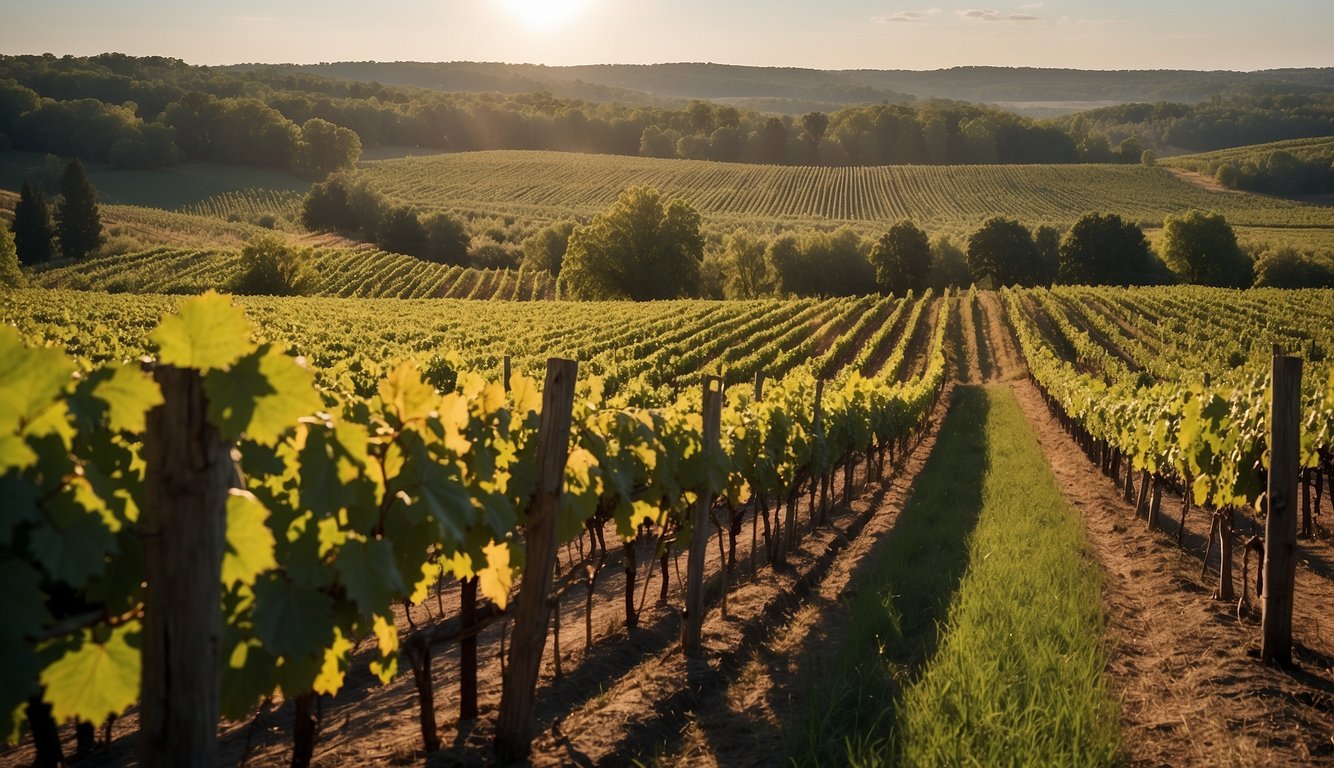
Michigan’s wine country has a rich and varied history, beginning with early explorers and evolving into a renowned wine-producing region.
Early Beginnings
In the early 1800s, French explorers were some of the first to recognize the potential of Michigan’s wild grape vines. The state’s unique climate, shaped by the Great Lakes, created an ideal environment for viticulture. By 1933, Michigan became the first state to ratify the repeal of Prohibition, which led to a surge in winery openings, particularly in the Detroit area.
One notable early success was the establishment of St. Julian Winery by Mariano Meconi. His journey started in the 1920s, and the winery eventually relocated to Detroit in 1934, marking a new era in Michigan’s wine history. This early period was characterized by experimentation and growth, as winemakers began to understand and adapt to Michigan’s unique terroir.
Modern Developments
In recent years, Michigan’s wine industry has significantly expanded. The state now ranks among the top 10 wine-producing states in the U.S., offering a diverse range of wines from traditional reds and whites to fruit wines and ice wines. Initiatives like the Judgement of Michigan in August 2021 have helped spotlight the quality and variety of Michigan wines, with over 350 entries evaluated by a panel of judges.
Modern wineries have also embraced both the art and science of viticulture, integrating advanced winemaking techniques and sustainable practices. This development has strengthened Michigan’s identity as a frontier of winemaking, blending rich history with innovative practices. The growth in the number of vineyards and wineries has create a vibrant wine tourism scene, drawing enthusiasts from all over.
Unique Climate and Geography
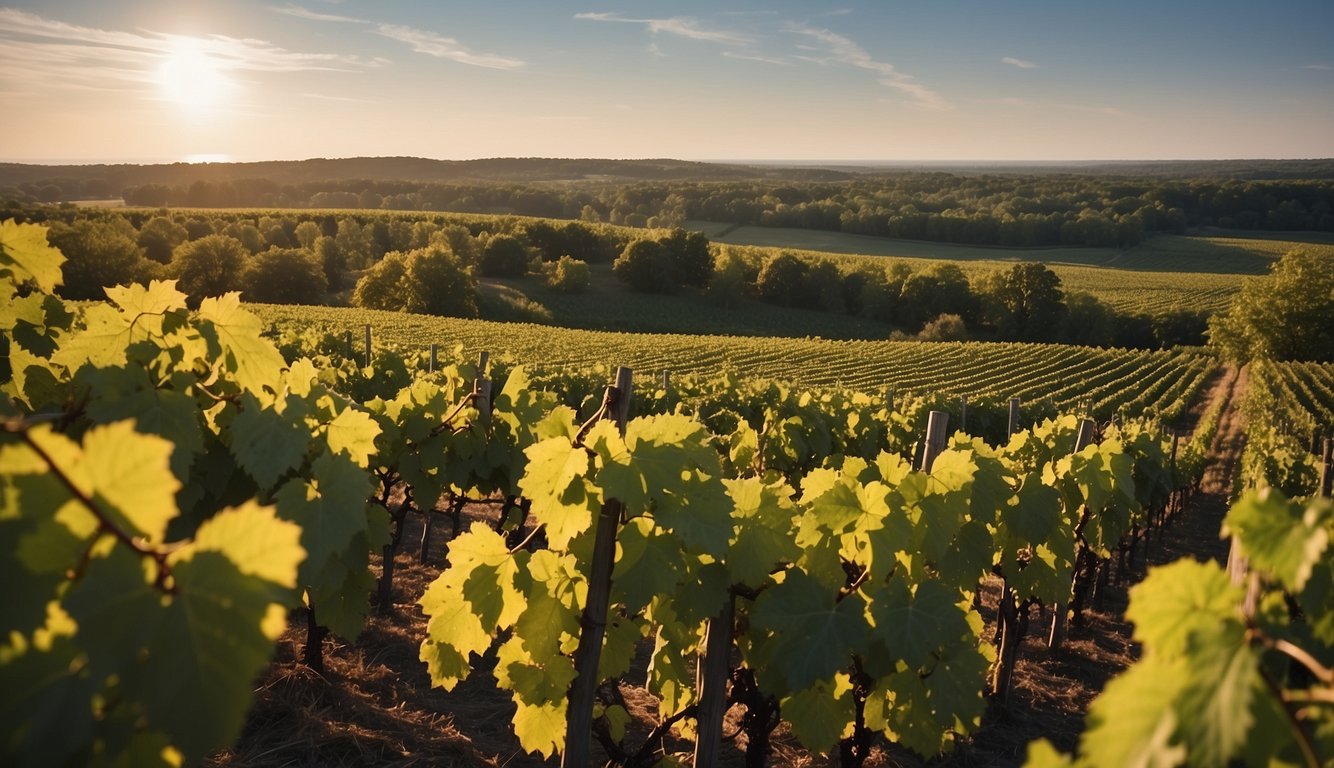
Michigan’s vineyards thrive thanks to the region’s unique climate and geography. The state’s proximity to the Great Lakes and diverse soil composition create ideal conditions for grape cultivation and wine production.
Lake Effect
The “lake effect” plays a significant role in Michigan’s grape growing success. Surrounded by the Great Lakes, especially Lake Michigan, vineyards benefit from the moderating impact these bodies of water provide.
Lake Michigan acts as a heat sink, absorbing warmth in the summer and releasing it slowly during colder months. This helps prevent frost damage in vineyards during spring and fall. The lake’s presence also extends the growing season, providing more time for grapes to ripen.
Snowfall is another aspect of the lake effect. In the winter, the Great Lakes contribute to heavy snowfall, which insulates the vineyards and protects the grapevines from extreme cold. This natural insulation helps maintain vine health and ensures robust growth come spring.
Soil Composition
Michigan’s diverse soils contribute to the distinct flavors found in its wines. The state features a mix of sandy, loamy, and clay soils, each bringing unique characteristics to the vineyards.
Sandy soils are well-draining, which is essential to prevent waterlogging and root damage. These soils make it easier for vines to develop extensive root systems, accessing nutrients deep within the ground. Wines produced on sandy soils often have crisp acidity and bright fruit flavors.
Loamy soils, which are a blend of sand, silt, and clay, offer excellent fertility and moisture retention. This combination supports strong vine growth and promotes balanced grape ripening. Grapes grown in loamy soils typically produce well-rounded and rich wines.
Clay soils are known for their ability to retain moisture and nutrients, which is beneficial during dry spells. However, they can also compact easily, so careful vineyard management is required. Wines from clay soil often exhibit deep, intense flavors and a firm structure.
The interplay between the lake effect and soil composition is crucial in crafting the unique wines that Michigan is known for. This combination helps to produce high-quality wines that attract enthusiasts from far and wide.
